|
|
![[Vertical line]](img/vline.gif)
|
![[Title]](title/tutorials.gif)
| |
Tutorial location
Tutorials and workshops will take place on 15th and 16th of July at the
Faculty of Engineering
(FacoltÓ di Ingegneria)
of the University of Bologna, in Via Risorgimento 2, just outside of the
city centre.
The best way to reach the Faculty of Engineering is to reach Porta
Saragozza (at the South-West vertex of the Walls of the Old Town) by taxi,
bus (line 20 from the city center, line 32 from the train station), or
walking (ten minutes from the city center).
Then, climb the hill through Via Risorgimento, find the buildings of the
Faculty on the top of the hill, and follows the signs.
All the tutorials will be located in the DEIS building of the
Engineering Faculty.
In particular, Room 4.1 is located at the ground floor, while Rooms 5.1, 5.3,
5.4, 5.5 are located at the first floor of the DEIS building.
Also, please notice that both the DEIS and the Main building of the Engineering
Faculty are actually different portions of the same big building, so that
attendants can easily move among different tutorials and workshops fast and
easily.
Tutorial schedule
Tutorial details
|
T1
|
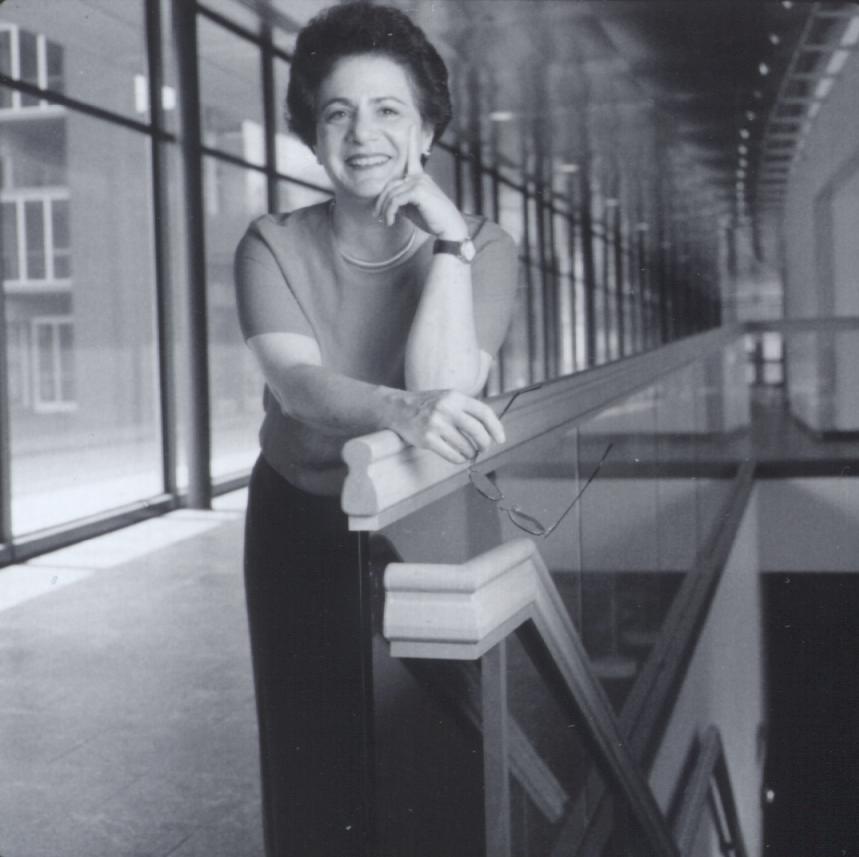
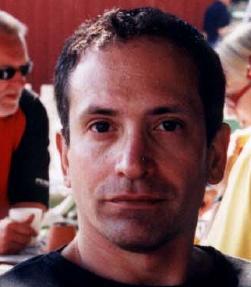

|
|
Collaborative Multi-agent Systems (FULL DAY)
|
|
Barbara Grosz, Charlie Ortiz, Milind Tambe
|
Collaborative agent systems are critical in a vast range of
applications, in virtual environments for training and education, in
improving human-computer interaction and organizational productivity,
in applications in disaster rescue, space, military, and other
spheres. Such collaborative systems are within reach thanks to
progress in our understanding of rationality, both collective and
individual. This tutorial will describe both the major theoretical
advances that can support the principled designs and analysis of such
systems as well as describe implementations based on these theories.
The tutorial will begin with an overview of rationality: what it means for
an agent to be rational and how this can be reflected in agent designs.
This will include a brief review of models of mental state: for example, the
representation and role of intentions and the relation of intentions to
other attitudes such as that of belief. Then we will consider information
flow within agent architectures, emphasizing considerations of
resource-boundedness and the ways this affects formalizations and system
designs.
The tutorial will then examine a range of approaches to modeling the
collaborative behavior of a group of agents on a joint task. Two broad
classes of formal computational models will be presented and examined in
the light of major philosophical approaches. The first class of models,
prescriptive in nature, are formalized using modal logic. They
require the introduction of new notions of intention, ability, and
helpful behavior. These new notions will be examined, as will
ways to model stages of partiality in joint planning processes.
The second class of models, focused on
analysis, are formalized using markov decision processes (MDPs). We will
introduce distributed partially observable MDPs, and the complexity
efficiency analysis made possible by these models.
The tutorial will also examine in detail practical, real-world
collaborative multiagent systems developed based on models of
collaboration, explaining strengths and the weaknesses in existing
formal models. We will also examine adjustable autonomy, a critical
issue for collaborative systems involving agent-human interactions.
Interested participants may attend our tutorial in the morning (half
day), in the afternoon (half day) or the full day. Researchers familiar
with theory and interested in practical aspects of collaboration may
attend the second half in the afternoon, while researchers especially
interested in BDI theories may wish to attend only the first half.
Tutorial contents
The tutorial will cover the following areas: (1) motivations for
collaboration; (2) BDI theories and agent architectures;
(3) theories of collaboration; (4) practical applications of agent
systems, including agent-human interactions and adjustable autonomy;
(5) decision theoretic agents; (6) negotiation in collaborative
systems; (7) and demonstrations of select collaborative systems.
Target audience and necessary background
This tutorial is suitable for a general AI audience. Knowledge of AI
planning would be helpful. It should be of interest to: researchers in
distributed AI; those interested in the theoretical aspects of
collaboration; and those interested in designing and building collaborative
information systems, user interfaces, and planning systems.
Information about the lecturers
Barbara Grosz is the Higgins Professor of Natural Sciences in the Division of
Engineering and Applied Sciences and Dean of Science of Radcliffe
Institute, Harvard University and is a past president of AAAI. Her research addresses
fundamental problems in modeling collaborative activity and in developing
computer systems able to collaborate with each other and their users. She
is one of the developers of the SharedPlans model of collaboration. She is
extending this model and using it to construct collaborative interfaces and
computer agents that work together in teams.
Charlie Ortiz is Program Manager of Collaboration Science and
Technology at the AI Center of SRI International. His research
centers on understanding the connections between mind and action, from
both a planning and an explanatory perspective. At SRI he leads projects
in distributed robotics and negotiation for multiagent systems. As a
postdoctoral fellow at Harvard, his research focussed on models of
collaboration. His PhD in computer science from the University of
Pennsylvania was for his work on causation.
Milind Tambe is an Associate Professor of Computer Science at
University of Southern California (USC), and a project leader at USC's
Information Sciences Institute. He received his Ph.D. in 1991 from
the School of Computer Science at Carnegie Mellon University. His
interests are in the areas of multi-agent systems, specifically
multi-agent teamwork, negotiation, agent modeling and adjustable
autonomy, and he has published extensively in these areas. He has
constructed several large-scale, real-world agent teams, based on a
reusable teamwork model called STEAM that applies across these
applications. More recent work has involved a formal analysis of
teamwork using distributed partially observable markov decision processes.
|
|
|
T2
|
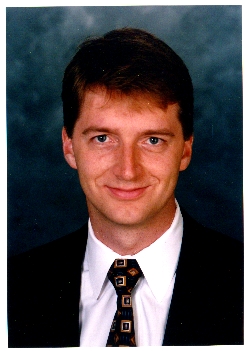
|
|
Market Clearing Algorithms
|
|
Tuomas Sandholm
|
The last three years have witnessed a leap of improvement in market
clearing algorithms both for traditional market designs and entirely
new market designs enabled by advanced clearing technology. This
tutorial covers the computational implications of different market
designs and presents algorithms for clearing markets optimally and
approximately. Auctions, reverse auctions, and exchanges
(many-to-many auctions) are covered. Both theoretical and
experimental results are presented. Multi-item and multi-unit markets
will be a key focus. Computational implications of different classes
of side constraints will be presented. Bid types covered include
price-quantity bids, different shapes of supply/demand curves, and
combinatorial bids. A new method for selective preference elicitation
for combinatorial markets is presented.
Target audience and necessary background
No prior knowledge of markets is assumed. A basic familiarity with
algorithms and NP-completeness would be helpful.
Information about the lecturer
Tuomas Sandholm is Associate Professor of computer science at Carnegie
Mellon University. He received the Ph.D. and M.S. degrees in computer
science from the University of Massachusetts at Amherst in 1996 and
1994. He earned an M.S. (B.S. included) with distinction in
Industrial Engineering and Management Science from the Helsinki
University of Technology, Finland, in 1991. He has eleven years of
experience building electronic marketplaces. Several of his systems
have been commercially fielded. He has published over 125 technical
papers, and received numerous academic awards including the inaugural
ACM SIGART Autonomous Agents Research Award and the NSF Career award.
|
|
|
T3
|
|
|
Social Interaction with Embodied Agents
|
|
W. Lewis Johnson
|
This tutorial will acquaint the participants with current methods for
creating embodied agents capable of social interaction with users. It
has been well established by Reeves, Nass, and others that people react
to computers in a similar way to the way that they interact people,
i.e., they interact socially with computers. Embodied agents exploit
this tendency by presenting a human-like appearance. But appearance
alone is not sufficient: if agents are unable to interact socially in
an effective manner with people, it can engender negative impressions
and frustration in people.
The tutorial will review methods for generating adaptive behavior in
agents, and then focus on the requirements for effective social
interaction. These include modeling attitudes, affect, and personality
in agents, modeling face-to-face communication, modeling user
responses, and engaging in interactional tactics. Collaboration in
human-agent teams will also be discussed.
Particular emphasis will be placed on educational applications, where
social intelligence can yield practical benefits. Expert tutors are
able to interact with learners at both an affective and a cognitive
level. Agents that are able to gauge learner affect and reactions, and
are able to develop a social relationship with learners, have the
potential of improving the effectiveness of educational software.
Target audience and necessary background
The course will be designed to be understandable by beginners, although
participants with an advanced background in embodied agents and
human-agent interaction should also benefit.
Information about the lecturer
Lewis Johnson a Senior Project Leader at the University of Southern
California / Information Sciences Institute, where he directs the
Center for Advanced Research in Technology for Education. His
particular area of research interest is in the use of embodied agents
for education and training applications. He is program co-chair of the
AAMAS 2002 conference, a member of the Steering Committee for the
International Conferences on Autonomous Agents, and is chair of the
selection committee for the SIGART Autonomous Agents Research Award.
Dr. Johnson has presented a number of tutorials and invited talks on
autonomous agent topics around the world, including the 2002 AmericasŇ
Agent School.
|
|
|
T4
|


|
|
Agents, Middleware, and the Grid
|
|
Omer Rana, Michael Schroeder
|
Recent advances in information technology and its use, such as
component based software development, high speed networks,
standardisation of interfaces to databases and data repositories,
virtual machines and cluster computing, public domain and community
software licensing arrangements, on-demand (on-use) software payment
schemes, and network aware interfaces and visualisation have the
potential to transform the capability and modalities of scientific
research by providing transparent, intuitive, timely, effective and
efficient access to distributed, heterogeneous and dynamic
resources. These resources include computational facilities,
applications, visualisation, data and experimental facilities,
integrated and accessible as a single resource over the Internet - the
Grid.
To make effective utilisation of resources across a Grid that spans
organisational boundaries, it is imperative that the underlying
infrastructure support intelligence. Intelligent software is required
to undertake resource and service management, service discovery,
service aggregation/decomposition, and support performance
management. Commercial systems will also require the underlying
infrastructure to respect site autonomy, and particular site specific
policies on usage. Thus, many solutions developed in the agents
community are applicable to the grid and the grid can serve as a
practical testbed for many agent concepts and theories.
In this tutorial we will present example problems that require
Grid solutions — and outline reasons why the Grid is necessary. We
also survey Grid middleware such as CORBA, RMI, PVM, MPI, and
mobile agents — and outline reasons why the agent based
approach is suitable for Grid computing. We briefly explore emerging
areas which are likely to impact Grid applications — such as
WebServices and Peer-2-Peer computing. We will cover Grid
infrastructure for resource discovery, resource allocation, and
security as catered for in platforms like Globus (such as the Open Grid
Services Architecture (OGSA)) and others, and discuss advanced topics,
which are particularly relevant for agent research, such as service
discovery, service composition, load-balancing, trading and brokering.
Target audience and necessary background
The tutorial assumes familiarity with basic programming concepts.
Information about the lecturers
Omer Rana is a Senior Lecturer in the Department of Computer
Science at Cardiff University, and the Associate Director for the
Welsh E-Science/Grid Centre. He has delivered university and industry
courses on Distributed Systems and Distributed Multi-Agent systems
over the last 5 years. He has published over 50 papers, and has been
involved in the public understanding of science, working with BBC
radio and television, Channel 4 and the Discovery Channel as part of
ScienceLine. In 2000 he won an award from the Daily Telegraph for his
article on "Information Ants". His areas of research include high
performance distributed computing, and scalable multi-agent
communities. He has organised various conferences and workshops, and
is on the editorial boards of "Concurrency and Computation: Practice
and Experience" and "Scientific Programming" journals. He co-chairs a
research group on the Global Grid Forum, and also participates on the
UK Grid Engineering Task Force.
Michael Schroeder is a Senior Lecturer at the Department of
Computing at City University London. He teaches courses on Distributed
Systems and Software Agents and carries out research in software
agents. He has published over 60 articles including a monograph, two
patents and 13 journal articles, supervises five PhD students/RAs and
manages nationally and EU-funded projects on building information
agents which integrate information, deal with conflicts, and visualise
the data to the user. He is joint winner of the Cambridge University
Entrepreneurs Competition in 2000 and co-chaired two AISB symposia and
a workshop on rule mark-up langugages.
|
|
|
T5
|
|
|
Empirical Methods for Analysis of Agent Systems
|
|
Paul R. Cohen
|
How do you know that an agent system behaves the way it is supposed to?
How can you discover unexpected but interesting behaviors? How might
you compare two communication protocols, or evaluate the effects of a
motivational system, or model the contributions of environmental
factors to performance? These kinds of questions motivate empirical
methods, which include techniques for visualizing data, discovering
patterns, designing experiments, testing hypotheses, and building
models. The methods in this tutorial are statistical and include
exploratory data analyses and visualizations, experiment design tips
and techniques, statistical tests and methods for continuous,
categorical, and time series data; including t tests, analysis of
variance, regression analysis, log-linear models and contingency
tables; all applied to complex agent systems. The principal theme of
the tutorial is that understanding agent systems is equivalent to
assigning portions of the variance of performance measures to causal
factors in the environment, the agent's task, and its architecture.
Information about the lecturer
Paul Cohen is Professor of Computer Science at the University of
Massachusetts. He has published widely on empirical methodology,
including the book "Empirical Methods for Artificial Intelligence,"
(MIT Press, 1995).
|
|
|
T6
|
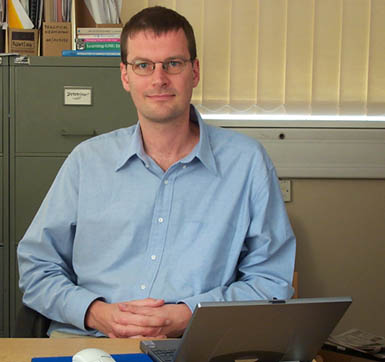
|
|
Rational Action in Autonomous Agents
|
|
Michael Wooldridge, Simon Parsons
|
The past decade has been witness to a rapid growth of interest in the
problems surrounding the design of rational autonomous agents. For
many researchers, this is now *the* defining problem of the AI
endeavour. Our aim in this tutorial is to show how computational
agents can be designed that can make effective decisions given only
limited resources.
After attending this tutorial, an attendee will:
- understand the concept of an autonomous agent;
- understand basic economic and decision-theoretic approaches to
rational action in autonomous agents;
- understand the limitations of naive utility maximising approaches to
rational action in resource-bounded agents;
- understand the main alternatives to utility maximisation approaches,
including bounded-optimality, decision-theoretic planning, and
partially observable Markov decision processes;
- understand the belief-desire-intention (BDI) model of agency, as a
computational approach to rational decision making.
Tutorial contents
Following an introduction to the basic idea of autonomous agents, we
survey the main theoretical approaches to rational decision making, in
which rational decision-making is viewed as utility maximisation. After
discussing the limitations of such approaches, we introduce the key
techniques proposed in the literature for overcoming these problems. We
focus in particular on the belief-desire-intention (BDI) model of
agency, which we illustrate by means of examples from mobile robotics.
Target audience and necessary background
The tutorial is intended for delegates with a basic grounding in AI,
(including such basic issues as search and knowledge representation)
but no knowledge of agents, decision theory, rational action, bounded
rationality, or the BDI model.
Information about the lecturers
Michael Wooldridge is Professor of Computer Science in the Department
of Computer Science at the University of Liverpool. He has been active
in the research and development of multi-agent systems for ten years,
gaining his PhD for work in the theoretical foundations of multi-agent
systems from the University of Manchester, UK in 1992. Prof Wooldridge
has published many articles in the theory and practice of agent-based
systems, and has edited eight books in the area. He has served on many
program committees for conferences and workshops in the area, and
serves as an associate editor of the International Journal of
Autonomous Agents and Multi-Agent Systems (Kluwer), and an editorial
board member for the Journal of Applied AI (Taylor & Francis). He is
coordinator of AgentLink, the ESPRIT-funded European Network of
Excellence in the area of agent-based computing (see http://www.AgentLink.org/).
Simon Parsons is a Reader in the Department of Computer Science at
Liverpool University. Dr Parsons received his PhD from the University
of London in 1993 for work on non-numerical approaches for decision
making in intelligent systems, and subsequently spent two years as a
post-doctoral fellow at the Imperial Cancer Research Fund. Here he
became interested in theoretical and practical aspects of argumentation
and its use as a non-numerical means of making decisions under
uncertainty. A focus of this work was clarifying the relationship
between argumentation and probability theory, which paved the way for
current research into the use of argumentation as a normative approach
to decision making. In 1995 Dr Parsons moved to Queen Mary and
Westfield College (QMW) as a Lecturer in the Department of Electronic
Engineering, and became involved in adapting systems of argumentation,
which were initially developed for lone intelligent agents, for use in
a multi-agent context. In particular, this work has concentrated on the
use of argumentation as a mechanism for negotiation. He moved to
Liverpool University at the end of 1999. Dr Parsons is the principal
investigator on the EPSRC funded project Qualitative Methods for
Reasoning under Uncertainty, and heads Liverpool's effort on the EC
funded project "Sustainable Lifecycles for Information Ecosystems". He
is also in charge of QMW's work on the EC funded ACTS project
"Multi-agent Architecture for Distributed-In Load Control". He has
written over sixty papers on techniques supporting decision making in
intelligent systems, co-edited two collections on the same subject, and
has a monograph in press. Dr Parsons is the editor of the Knowledge
Engineering Review, published by Cambridge University Press, and was
the recipient of a 1998 Younger Engineers Achievement Medal, awarded by
the IEE, for his work in informatics. |
|
|
T7
|

|
|
Fundamentals of Web Services
|
|
Munindar P. Singh, Michael N. Huhns
|
Web services have been garnering much attention lately in the industry
and from the research community. Everyone agrees about their
importance to information technology architectures and applications.
Unfortunately, much of the attention on web services has been focused
on low-level, infrastructural matters, sometimes down to encoding
syntaxes. However, to effectively design and use web services
requires an understanding of deeper concepts of architecture,
knowledge representation, programming models, communications,
interaction, compliance, and trust. These concepts have been
developed in diverse parts of computer science, especially,
heterogeneous databases, distributed computing, artificial
intelligence, and multiagent systems.
This tutorial describes web services at a conceptual level. It
provides the fundamentals necessary to understand key challenges and
evaluate possible approaches. This tutorial highlights the best
practices of web services and motivates the key trade-offs that
sometimes underlie industry hype. In this manner, it gives the
essential background for anyone planning to develop, use, or research
web services.
Attendees are encouraged to also register for a companion tutorial on
"In Depth Techniques, Technologies and Tools for Web Services,"
taught by Katia Sycara and Terry Payne.
Information about the lecturers
Munindar P. Singh
is an associate professor in computer science at
North Carolina State University. His research interests include
multiagent systems and web services with applications in e-commerce
and personal technologies. Munindar's research has been recognized
with awards and sponsorship by the National Science Foundation, IBM,
Cisco Systems, and Ericsson. Munindar is the editor-in-chief of IEEE
Internet Computing, and a member of the editorial board of the Journal
of Autonomous Agents and Multiagent Systems. He serves on the
steering committee for the IEEE Transactions on Mobile Computing.
Michael N. Huhns
is a professor in computer science and
engineering at the University of South Carolina, where he also directs
the Center for Information Technology. His research interests are in
the areas of distributed artificial intelligence, machine learning,
enterprise modeling, and software engineering. Mike is an associate
editor for the Journal of Autonomous Agents and Multiagent Systems.
He is on the editorial boards of IEEE Transactions on Mobile
Computing, IEEE Internet Computing, International Journal on
Intelligent and Cooperative Information Systems, and Journal of
Intelligent Manufacturing. He is on the Advisory Board for the First
International Conference on Multiagent Systems, 1995, and has been on
the Advisory Boards for several of the International Workshops on
Distributed Artificial Intelligence.
|
|
|
T8
|
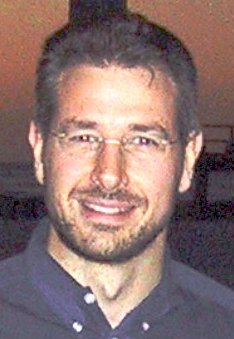
|
|
Reputation Mechanisms in Multiagent Systems
|
|
Chris Dellarocas, Rosaria Conte
|
An important challenge in open multi-agent environments is how to
induce cooperation and good behaviour among independently developed and
inherently selfish autonomous agents. For example, in electronic
markets, selfish trader agents have incentives to cheat by
misrepresenting the true quality of their services, defaulting of
promises, etc. Online reputation mechanisms are emerging as a promising
and efficient trust building mechanism in such settings. The proper
design and evaluation of such mechanisms is a surprisingly complex
problem that requires insights and tools from a variety of disciplines,
including computer science, game theory, social and cognitive sciences.
Tutorial contents
This tutorial summarizes the state-of-the-art in reputation mechanism
research and applications. An extensive literature from the fields of
game theory, multi-agent systems, social theory, experimental cognitive
psychology, social simulation, and sociobiology will be summarised and
exemplars from each field will be discussed. A cognitive model of
reputation will be presented. Applications in the field of
agent-mediated interaction, with special reference to e-commerce,
personalised assistants, believable agents and multi-agent systems will
be addressed. Finally, the game theoretic and simulation research
carried on within the presenters respective research groups will be
analysed. Future directions of research will be discussed.
Target audience and necessary background
Familiarity with elementary game theory and cognitive modeling concepts
will be helpful but not necessary.
Information about the lecturers
Chrysanthos Dellarocas is Associate Professor at MIT's Sloan
School of Management. He holds a Ph.D. in Computer Science from MIT. He
is the co-Director of the Robust Open Multi-Agent Systems (ROMA)
research group at MIT Sloan. Current focal points of his work include
the design of online institutions for producing trust in online
markets. He has published three university-level textbooks and over 40
refereed research papers. His recent editorial and review activities
include organizing two recent workshops on Norms and Institutions in
Multiagent Systems and serving as an associate editor of the Electronic
Commerce Research Journal. He is a recent recipient of the NSF CAREER
Award for his work in multiagent systems.
Rosaria Conteis currently Head of the "AI, Cognitive and Interaction
Modelling" Division at ISTC (Institute of Cognitive Sciences and
Technologies) of the Italian Research Council, and is teaching at the
University of Siena. She is active in the field of Multi-Agents
Systems, and has contributed to the development of Social Simulation in
Europe. Her research experience ranges from formal modelling to natural
and artificial experiments. Former Coordinator of the ABSS
(Agent-Based Social Simulation) Special Interest Group in AgentLink
Network of Excellence, she is involved in several EU projects under the
5th framework. Her research interests also include organisational
theory and design, and cultural and social evolution.
|
|
|
T9
|

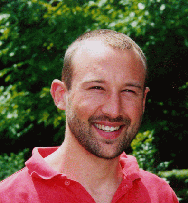
|
|
Interaction Protocol Engineering for MAS
|
|
Marc-Philippe Huget, Jean-Luc Koning
|
The aim of this tutorial is to help attendees in designing
interaction protocols for multiagent systems. After a brief
description of what interaction in multiagent systems means, we
will consider the full scope of interaction protocol
engineering. This stems from communication protocol
engineering and covers the design cycle from analysis to
conformance testing.
The core part of this tutorial will be devoted to a detailed
explanation of the different engineering stages: (1) the analysis of the
requirements, (2) the formal description of protocols, (3) the
validation of properties on these protocols, (4) the protocol synthesis
and (5) the conformance testing that checks whether the program behaves
like the protocol.
Target audience and necessary background
No special background is required to attend this tutorial. Numerous
example will be provided all along the lecture. By the end of the
tutorial, attendees will know how to design interaction protocols
given a formalism and will be able to perform protocol
checking. Interaction is definitely a major aspect in the design of
multiagent systems. This tutorial will gives a complete view of it.
Information about the lecturer
Marc-Philippe Huget
is currently working on the validation of
communication languages and protocols in multiagent systems. He
dedicated his PhD thesis to interaction protocol engineering.
Jean-Luc Koning
has been working in the domain of interaction since
1993. He specialized in formal definition of protocols and
applications to mediation and electronic commerce.
|
|
|
T10
|


|
|
In Depth Techniques, Technologies and Tools for Web Services
|
|
Katia Sycara, Terry Payne
|
Web services are being hailed as the Next Big Wave of innovation in
e-commerce and B2B integration. Recent industrial interest in such
services, and the availability of tools and standards to enable
automated invocation of business functionality through message exchange
(e.g. SOAP, UDDI, WSDL, WSFL, .NET etc) holds the promise of fast
progress in this area. The web service initiatives in industry,
government and research labs are many, diverse and for the most part
uncoordinated.
This tutorial will take an in-depth look at the current state of the
art in Web Services and sort through the increasing and confusing array
of relevant tools, languages and theories both from academia and
industry. The tutorial will also present and discuss business models
for web services and their potential for business value added. Many
examples to illustrate the described concepts, techniques, tools and
their use will be presented. More importantly, the tutorial will
discuss limitations of current technologies and present value added
advanced concepts, such as distributed service composition, semantic
web enabled web services, agent-mediated web services, as well as open
issues that must be addressed with emphasis on agent researcher
contributions.
Information about the lecturers
Katia Sycara
is a Professor in the School of Computer Science at
Carnegie Mellon University. and director of the Advanced Agent
Technology Laboratory. She holds degrees from Brown University,
University of Wisconsin and Georgia Institute of Technology. She has
been conducting and directing research on multiagent systems and their
applications in different areas, ranging from financial portfolio
management, e-commerce and crisis action management. Sycara is a
founding member of the International Foundation of Multiagent Systems.
a founding Editor-in Chief of the Journal on “Autonomous Agents and
Multi-Agent Systems”, Area Editor for AI and Management Science for the
journal “Group Decision and Negotiation”, on the editorial board of the
journals “The Semantic Web”, “AI in Engineering” and “Concurrent
Engineering, Research and Applications” and on the Kluwer book series
on Multiagent Systems. She is the recipient of the 2002 ACM/SIGART
Autonomous Agents Research Award.
Terry Payne
is a Project Scientist at the Robotics Institute at
Carnegie Mellon University. He holds a BSc. in Computer Systems
Engineering from the University of Kent at Canterbury, UK, and an MSc
and PhD in Artificial Intelligence from the University of Aberdeen,
Scotland. He is currently engaged in research on service and agent
discovery, coordination, and interoperation of agents and web services
through the Darpa Agent Markup Language (DAML) and the Semantic Web.
|
|
|
T11
|

|
|
Individuals, Markets, and Teams:
A Critical Review of Coordination Mechanisms
|
|
Mark Klein
|
One of the key challenges involved in developing effective multi-agent
systems is figuring out how the agents coordinate their activity, i.e.
decide which agent does what when using what resources in order to
efficiently handle the tasks given. The objective of this tutorial is
to critically review the current state of the art of multi-agent
coordination mechanisms, and help participants better understand the
key challenges and emerging solutions that are being identified by
artificial intelligence and related fields. This will include examining
the four main classes of coordination mechanisms (those modeled on
individuals, markets, teams and swarms) as well as approaches that are
emerging to deal with coordination breakdowns (i.e. exceptions).
Target audience and necessary background
This tutorial is designed for researchers, advanced developers and
technical managers interested in understanding how coordination
technology can be used in multi-agent systems. It assumes only basic
familiarity with the concept of distributing computation across
multiple cooperating entities.
Information about the lecturer
Mark Klein is a Principal Research Scientist in the MIT Sloan
Center for Coordination Science. His research addresses artificial
intelligence based support for multi-agent problem solving, with a
focus on collaborative design, negotiation, and exception handling. He
has published over 60 journal articles, conference papers and book
chapters on these topics, and has developed several major systems for
conflict management, design rationale capture and workflow management.
|
|
|
T12
|

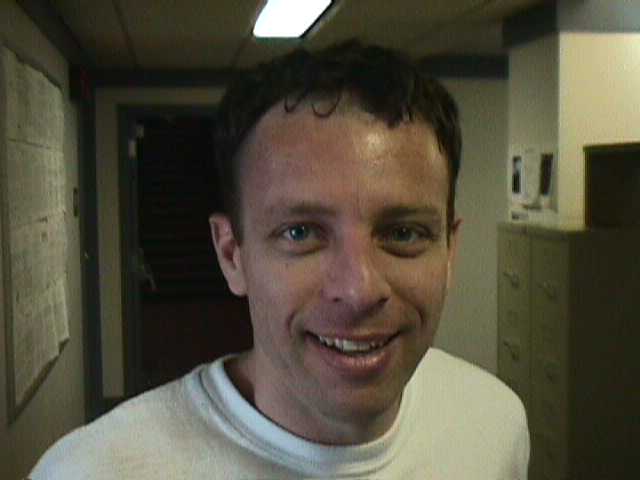
|
|
Trust Delegation and Autonomy: Foundations for Virtual Societies
|
|
Rino Falcone, Onn Shehory
|
The tutorial will address trust, delegation and autonomy, which are basic
constructs of the social paradigm of modern AI. This paradigm will be
introduced in the tutorial, focusing on its relevance to multi-agent
systems.
In addressing trust, we will analyse two main approaches to it:
socio-cognitive and game-theoretical. Main topics:
- Importance of trust for interaction among autonomous agents;
- Game Theoretical approach to trust;
- Socio-Cognitive approach to trust;
- Relationships among trust, autonomy, and control;
- Trust in rational decision and cooperation;
Trust, autonomy and delegation are among the foundations of agent
societies. Thus, a clear presentation and analysis of the basic elements of
social intelligence, and in particular of the notion of trust, should be
very interesting for AAMAS attendants.
Target audience and necessary background
This tutorial will be accessible to all AAMAS-02 attendees. It requires
interest in theoretical foundations of agenthood, and acquaintance with the
agent paradigm.
Information about the lecturer
Rino Falcone
has published several works on trust, delegation, and
autonomy. He has organized several conferences and in particular in the
last four years the "Deception, Fraud and Trust in Agent Societies"
Workshop c/o the Autonomous Agents Conference.
Onn Shehory
has a decade of experience in game-theoretical aspects of
multi-agent systems. He has published multiple papers, some on
trust-related issues, and organized several scientific meetings on agents.
|
|
|
T13
|
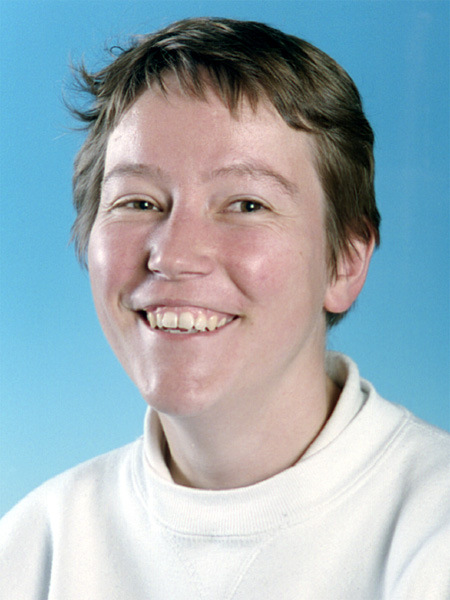
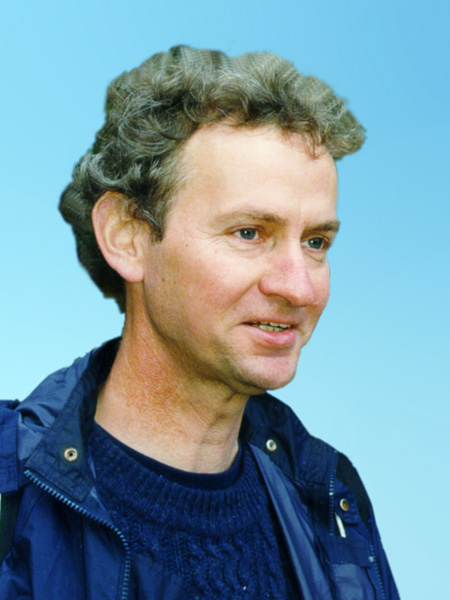
|
|
Agent-based Analysis of Dynamics in
Biological, Cognitive, and Organizational Domains
|
|
Catholijn M. Jonker, Jan Treur
|
Within biological, cognitive, and organisational domains, often multiple
interacting processes occur with dynamics that are hard to handle. For
example, modelling the dynamics of intracellular processes, internal mental
dynamics, and organisational dynamics pose real challenges for biologists,
cognitive scientists and organisation theorists. Currently differential
equations are among the techniques used to address this challenge, with
limited success. Within these disciplines it is felt that more abstract
modelling techniques are required to cope with the complexity.
Agent-based modelling makes the inherent complexity of the dynamics of
multiple, interacting active processes manageable by choosing an appropriate
level of abstraction in describing them. It offers structuring of a dynamic
phenomenon into: internal processes within an agent, externally observable
behaviour of an agent, and organisations of multiple agents. For each of
these aggregation levels techniques are available for specification of
dynamic properties, simulation, and formal analysis of the dynamics.
Moreover, relations between dynamic properties at different levels can be
identified, such as
- are certain dynamic properties observed and specified at the level of
agent behaviour entailed by a specific agent model for internal dynamics?
- which dynamic properties of agent behaviour fit in a certain role within a
given organisation model?
- does an observed trace of dynamics of an agent or an organisation fulfil a
specified dynamic property?
- if an organisation does not show appropriate dynamics, which part is to
blame?
Within this tutorial such questions are addressed. A methodological
perspective is presented on the basis of a number of realistic case studies:
e.g., bacterial behaviour, Call Center organisation, cooperating information
agents, BDI-agents.
Target audience and necessary background
No specific prerequisite knowledge is required.
Information about the lecturer
Both lecturers have extensive experience in agent modelling methodology
applied within different application domains.
More information on the lecturers:
http://www.cs.vu.nl/~jonker,
http://www.cs.vu.nl/~treur.
Further Information
More background information for this tutorial:
http://www.cs.vu.nl/~wai/AAMAS02tutorial/.
|
|
|
![[Top]](img/top.gif)
|
|
|


















